Every now and then, we are hard at work behind the scenes producing larger product releases. This week is one of those weeks! So, we are going to take today to take a look back at the Artemis product line. Started in 2019, Artemis was introduced at the world's first open-source, US manufactured, BLE module with FCC/IC/CE certification. We developed it to be a reliable machine learning tool that was operable with the Arduino Core and put it on serveral of our more popular boards including RedBoard (R3), Thing+ (Feather), and ATP (Mega/Due). Today, the SparkFun Artemis product lines has ballooned to multiple stand alone boards and is even featured in our rapid-prototyping MicroMod ecosystem. Let's dive in and look at each of our boards!
Click the image above to visit our Artemis Information Page!
The module that started it all off!
The Artemis Module from SparkFun is a Cortex-M4F with BLE 5.0 running up to 96MHz and with as low power as 6uA per MHz (less than 5mW). This is the world's first module to bridge the market between hobbyists and consumer products. We've packaged all the power of a modern microcontroller into a module that is both extremely easy to use but is mass-market ready.
The flexibility of the Artemis module starts with our Arduino core. You can program and use the Artemis module just like you would an Uno or any other Arduino. Time to first blink is just 5 minutes away! We built the core from the ground up, making it fast and as light weight as possible.
Next is the module itself. Measuring 10x15mm the Artemis module has all the support circuitry you need to use the fantastic Ambiq Apollo3 processor in your next project. We're proud to say the SparkFun Artemis module is the first open source hardware module with the design files freely and easily available here. We've carefully designed the module so that implementing Artemis into your design can be done with low-cost 2-layer PCBs and 8mil trace/space.
The original three form-factors!
Think of the RedBoard Artemis as just another Arduino... That has BLE. And one megabyte of flash. And runs at less than 1mA. Oh, and it can run TensorFlow models. Ya, that too. The RedBoard Artemis takes the incredibly powerful Artemis module from SparkFun and wraps it up in an easy to use and familiar Uno footprint. We've written an Arduino core from scratch to make programming the Artemis as familiar as Serial.begin(9600). Time-to-first-blink is less than five minutes.
The RedBoard Artemis has the improved power conditioning and USB to serial that we've refined over the years on our RedBoard line of products. A modern USB-C connector makes programming easy. A Qwiic connector makes I2C easy. The RedBoard Artemis is fully compatible with SparkFun's Arduino core and can be programmed easily under the Arduino IDE. We've exposed the JTAG connector for more advanced users who prefer to use the power and speed of professional tools. We've added a digital MEMS microphone for folks wanting to experiment with always-on voice commands with TensorFlow and machine learning. We've even added a convenient jumper to measure current consumption for low power testing.
We like to joke the Artemis Nano is a party on the front and business on the back. And that's by design! All the important LEDs, connectors, labels, and buttons are presented on the front for the best user experience with all the supporting circuitry on the rear of the board. The RedBoard Artemis Nano is a minimal but extremely handy implementation of the Artemis module. A light weight, 0.8mm thick PCB, with on board LiPo-battery charging and a Qwiic connector, this board is easy to implement into very small projects. A dual row of ground connections make it easy to add lots of buttons, LEDs, and anything that requires its own GND connection. At the same time, the board is breadboard compatible if you solder the inner rows of pins.
The RedBoard Artemis ATP is affectionately called 'All the Pins!' at SparkFun. The Artemis module has 48 GPIO and this board breaks out absolutely every one of them in a familiar Mega like form factor. What's with the silkscreen labels? They're all over the place. We decided to label the pins as they are assigned on the Apollo3 IC itself. This makes finding the pin with the function you desire a lot easier. Have a look at the full pin map from the Apollo3 datasheet. If you really need to test out the 4-bit SPI functionality of the Artemis you're going to need to access pins 4, 22, 23, and 26. Need to try out the differential ADC port 1? Pins 14 and 15. The RedBoard Artemis ATP will allow you to flex the impressive capabilities of the Artemis module.
If you are looking for a board that (almost) does it all, look no further! The SparkFun Artemis Thing Plus takes our popular Thing Plus footprint and adds in the powerful Artemis module for ultimate functionality. Fully compatible with SparkFun's Arduino core, the modern USB-C connector makes it easy to program under the Arduino IDE but for more advanced users who prefer to use the power and speed of professional tools, we've also exposed the JTAG connector. To make the Thing Plus even easier to use, we've moved a few pins around to make the board Feather compatible and it utilizes our handy Qwiic Connect System which means no soldering or shields are required to connect it to the rest of your system!
With a clear view of the sky, the SparkFun Artemis Global Tracker (AGT) allows you to send and receive short data messages. Incorporating the Artemis Module, Iridium 9603N Short Burst Data modem, u-blox ZOE-M8Q GNSS receiver, and a TE MS8607 PHT sensor, this compact tracker allows you to do an incredible number of things that used to be very difficult. Leveraging the Iridium satellite network, it works anywhere in the world, including the polar regions, far beyond the reach of WiFi and GSM networks.
Leveraging the ultra powerful Artemis Module, the SparkFun MicroMod Artemis Processor is the brain board of your dreams. With a Cortex-M4F with BLE 5.0 running up to 96MHz and with as low power as 6uA per MHz (less than 5mW), the M.2 MicroMod connector allows you to plug in a MicroMod Carrier Board with any number of peripherals. Let's have a look at what this processor board has to offer! If you need Machine Learning capabilities, Bluetooth, I2C functionality to connect to all our amazing Qwiic boards, and more the Artemis Processor is the perfect choice for your MicroMod Carrier Board.
The SparkFun OpenLog Artemis is an open source data logger that comes preprogrammed to automatically log IMU, GPS, serial data, and various pressure, humidity, and distance sensors. All without writing a single line of code! OpenLog Artemis, or "OLA," automatically detects, configures, and logs Qwiic sensors. The OLA is specifically designed for users who just need to capture a lot of data to a CSV and get back to their larger project.
Due to some supply constraints surrounding the on-board IMU during the pandemic, we also released a more economical version of the OLA without one!
The SparkFun Artemis Development Kit is the latest board to be released around the SparkFun Artemis Module and it allows access to more software development features than previous Artemis based boards. Recommended software used to program the Artemis DK are the Arduino IDE, Arm® Mbed™ OS (Studio and CLI), and AmbiqSDK. An updated USB interface (MKL26Z128VFM4 Arm® Cortex®-M0+ MCU, from NXP) allows the Artemis Dev Kit to act as:
- Mass Storage Device (MSD): Used to provide drag and drop programming to the Artemis Module.
- Human Interface Device (HID): Used for the debugging interface to the Artemis Module.
- Communication Port (COM): Used to provide a serial communication UART between the Artemis and the USB connection (PC).
A kitted version also includes the SparkFun Artemis DK board as well as the accessories (Himax camera & USB-C cable) needed to get started right away.
As you might be able to tell, the Artemis has been our go-to board for a wide variety of kits that we've developed. It's a tried and true processor that can slot into most any role from the Arctic to home and will provide you with reliable data and development functionality wherever you might go!
That's it for this week. As always, we can't wait to see what you make! Shoot us a tweet @sparkfun, or let us know on Instagram, Facebook or LinkedIn. Please be safe out there, be kind to one another! We'll be back with more new products next week so make sure to check back then. Happy hacking!
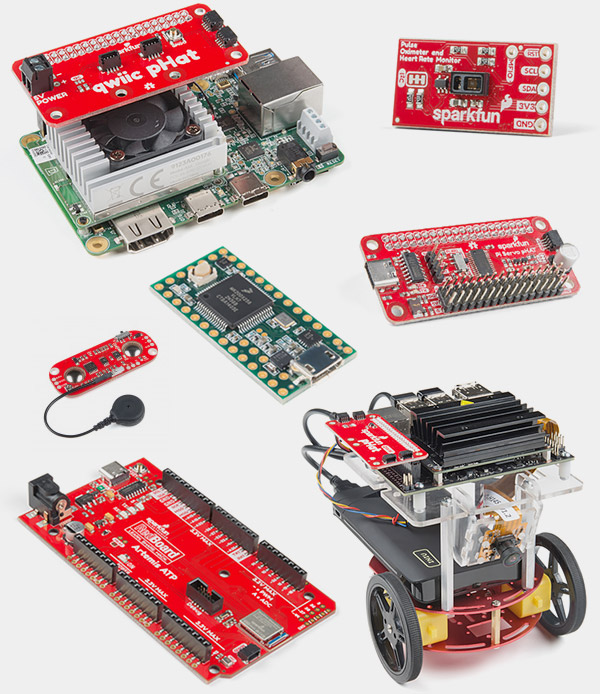
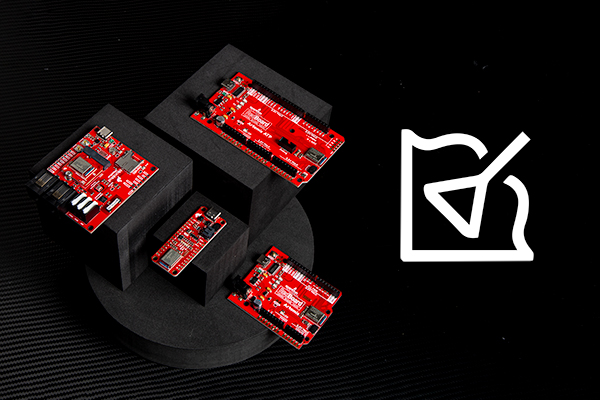
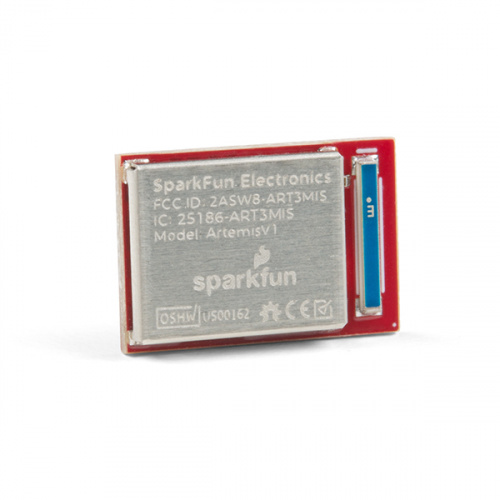
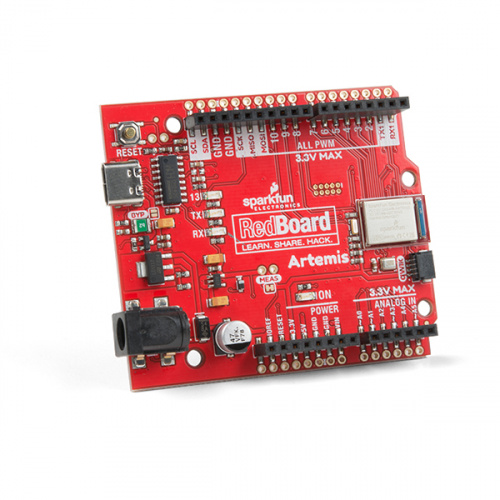
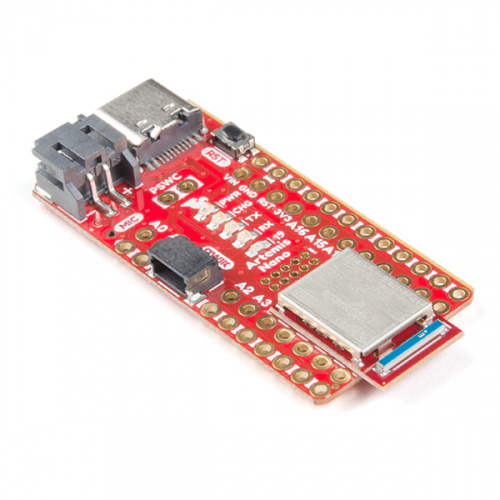
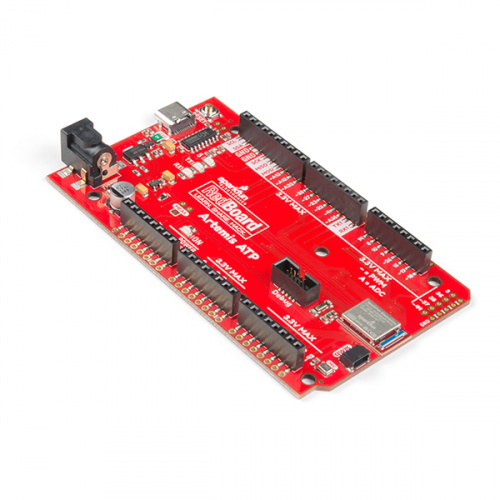
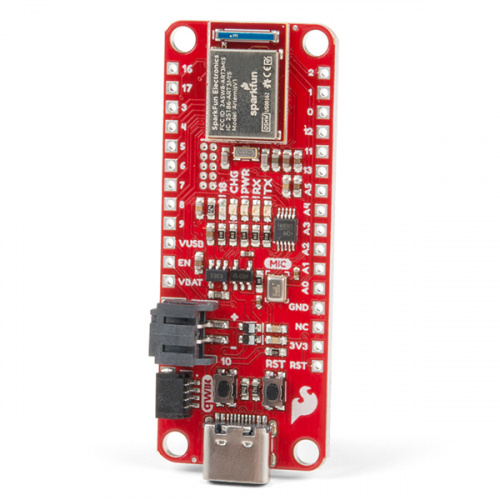
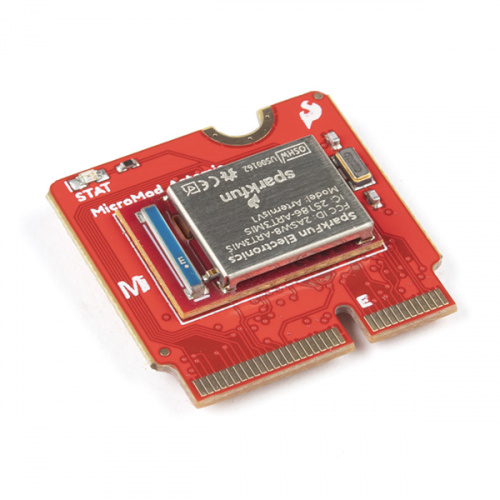
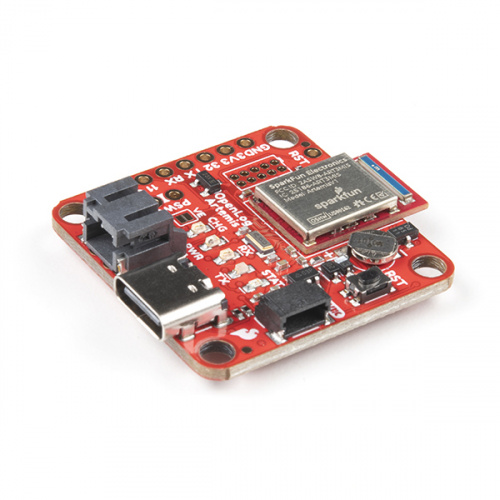
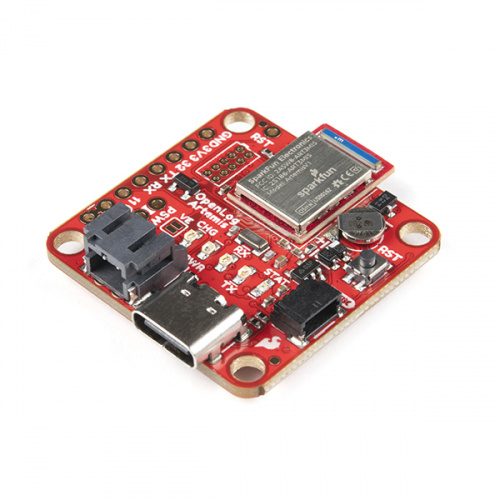
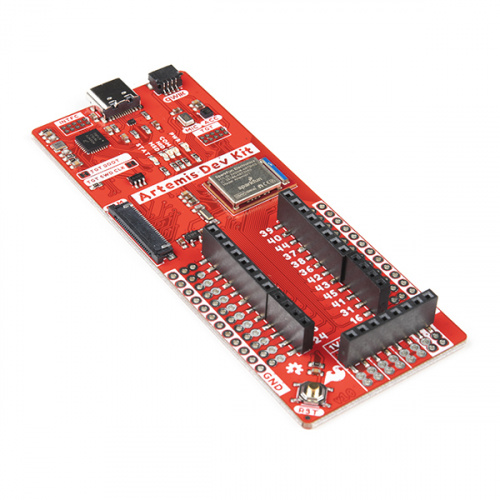
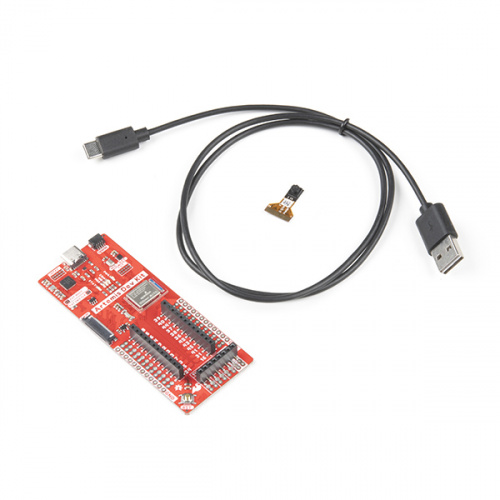
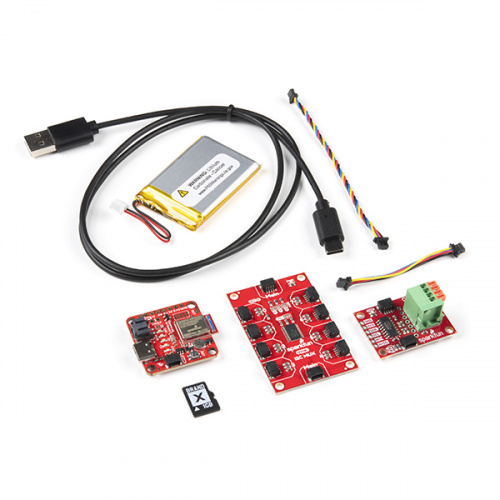
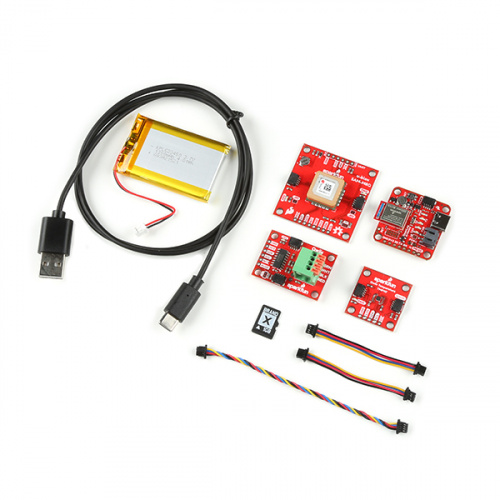
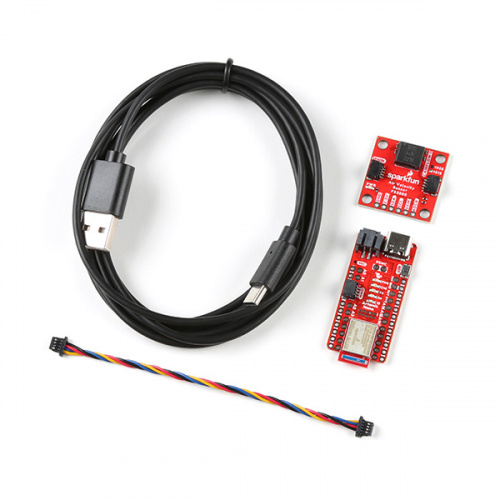
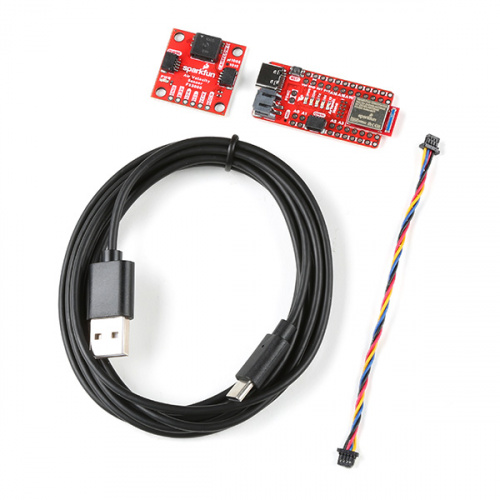
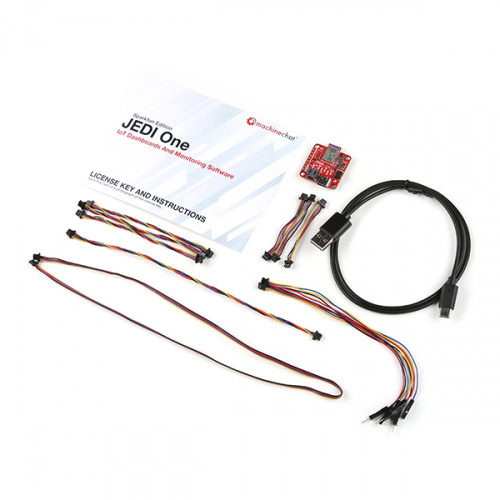
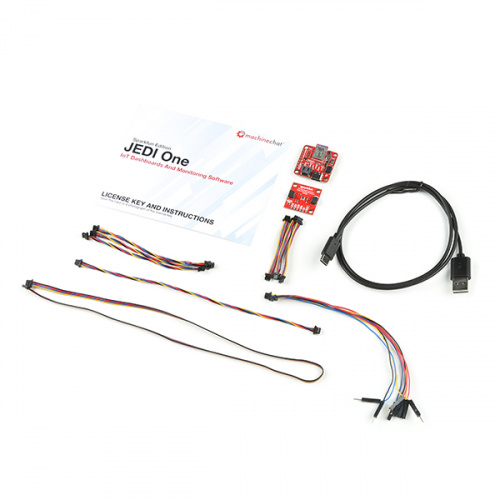
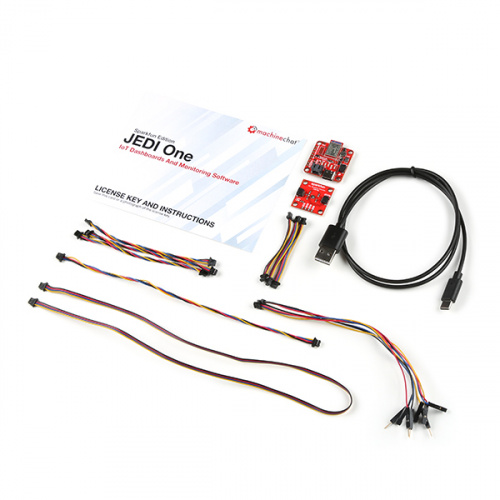
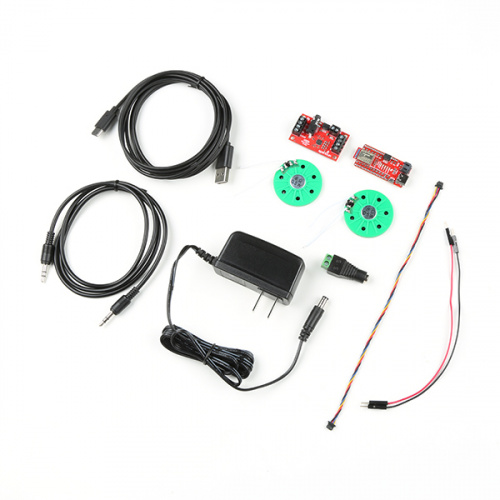
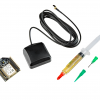
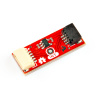
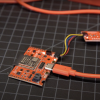






The Artemis unit has a lot to recommend it. Low power, fast, Arduino ecosystem for programming. The software has a couple of minor quirks but no showstoppers. I have used Nano and Thing and configurations. Extremely convenient boards--Goldilocks!! Just enough peripherals to simplify design and construction but no bloat. I used these boards in a remote weather station project where power conservation was an issue. (Elektor project here: https://www.elektormagazine.com/labs/low-power-lora-weather-station. Also presented as an article) When actually deployed remotely, minor sources of current consumption can translate to days or even weeks of battery life over the long haul. There are two board changes that would make the boards even more versatile. First, the enable pin for the regulator is pulled high with an external resistor. This complicates the use of an external timer such as Adafruit's TPL5111. I removed the pullup resistor, but a trace that could be cut, removing the resistor from the circuit, would be great. The second change would be a trace that could be cut to take the power indicator LED out of the circuit. That's a couple of extra mA every time the board is running. Critical for development, not so much for deployment. My two cents. Keep up the good work, folks.